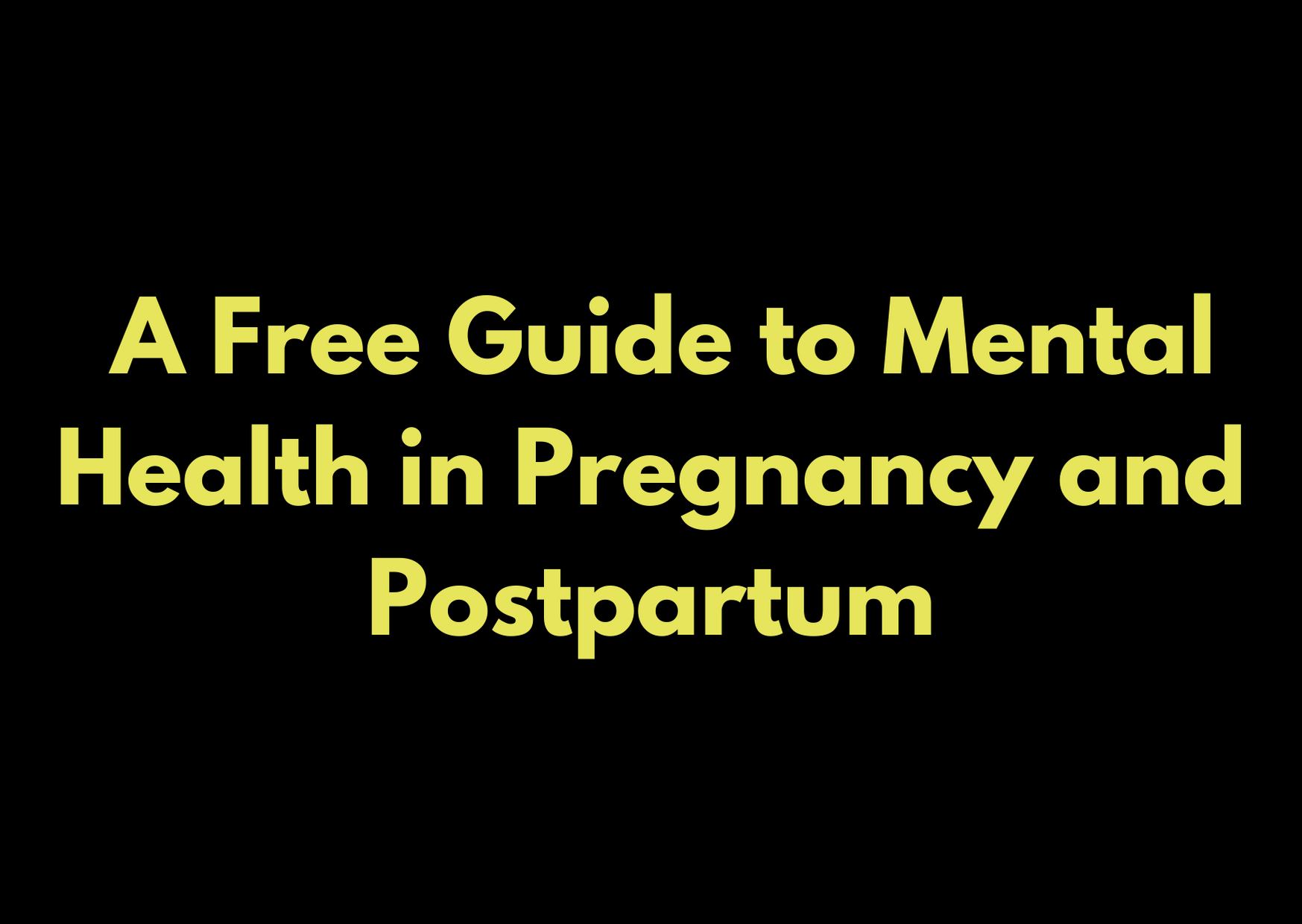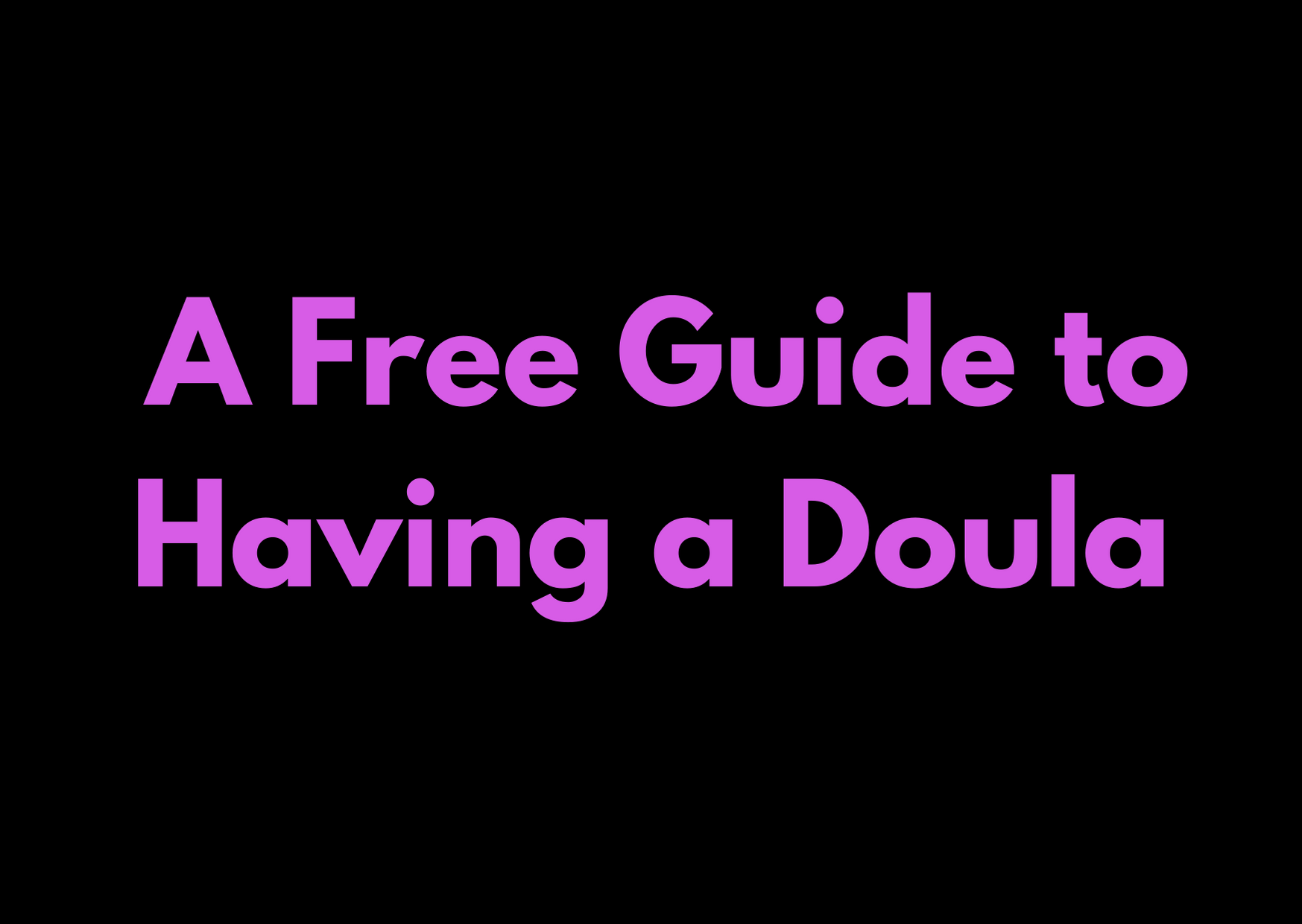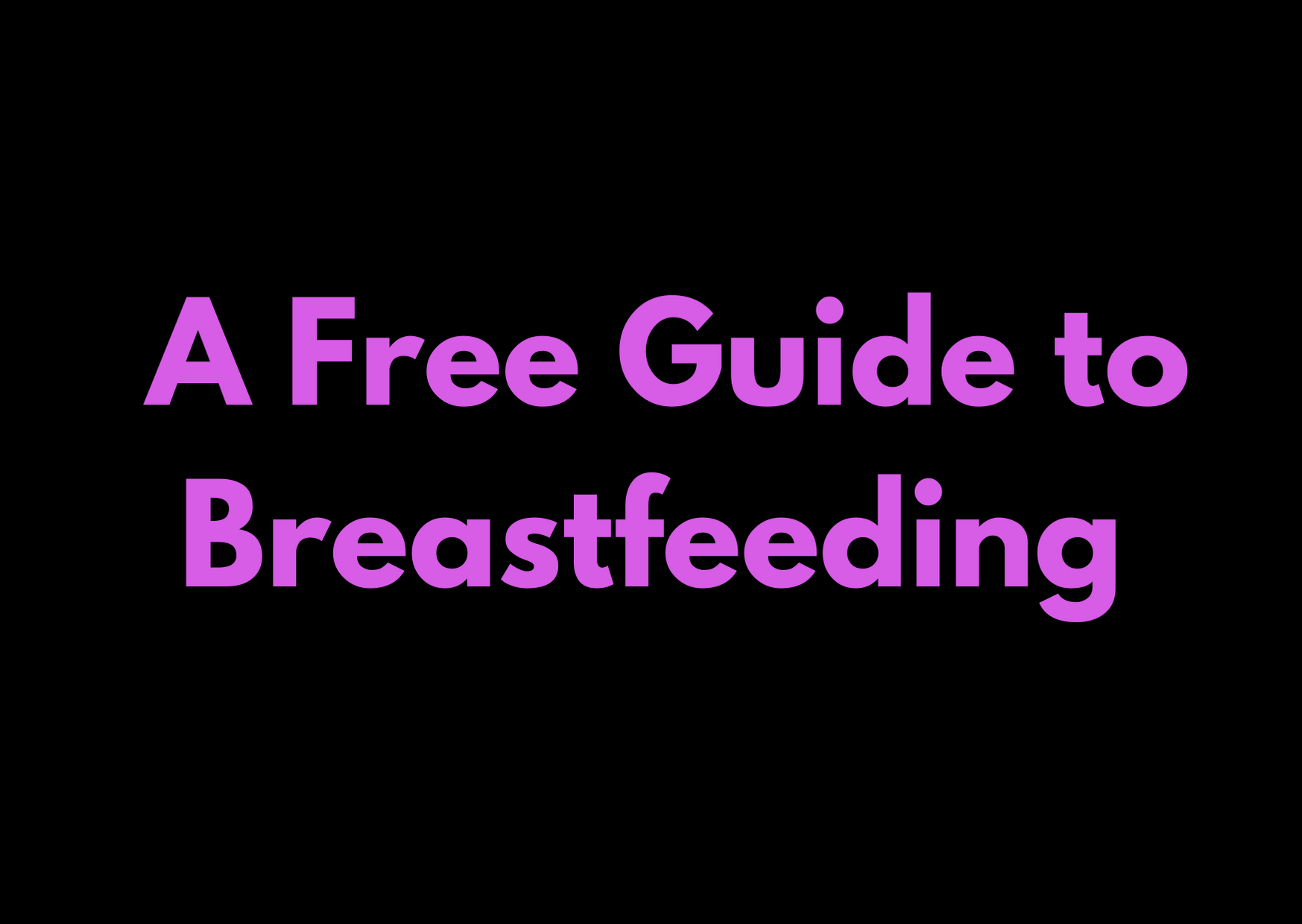A Free Guide to Mental Health in Pregnancy and Postpartum
Becoming a mother is one of the most significant transitions in a woman’s life. Not only is there the physical growth and birth of the baby, but there is a parallel emotional journey towards motherhood.
The way a woman experiences her pregnancy is individual to her. We all come to pregnancy with our own important personal histories. You may have been through many cycles of fertility treatment; you may not want children; you may have conceived in a blended cultural family; you may have experienced a previous pregnancy loss; you may have conceived straight away and are ecstatic……
Becoming a mother is one of the most significant transitions in a woman’s life. Not only is there the physical growth and birth of the baby, but there is a parallel emotional journey towards motherhood.
The way a woman experiences her pregnancy is individual to her. We all come to pregnancy with our own important personal histories. You may have been through many cycles of fertility treatment; you may not want children; you may have conceived in a blended cultural family; you may have experienced a previous pregnancy loss; you may have conceived straight away and are ecstatic; you may be recently bereaved; you may have experienced birth trauma; you may have become pregnant at the same time as your best friend… this is by no means a complete list, but highlights how each and every woman will be experiencing and living her pregnancy differently.
Most women experience changes in their mood and relationships during pregnancy. This is to be expected as it is a huge life-changing time. For most, these feelings come and go, and may feel momentarily overwhelming, but you are able to continue living your life as you would like. For some, however, these feelings and emotions can be all-consuming, and they hinder every-day life. A pre-existing mental health diagnosis can sometimes be an indication of maternal mental health challenges in pregnancy or with a new baby, although not always.
Please know, that the behaviours and thoughts I list below are not to be used to diagnose, these are for personal reference only. The list is not exhaustive, and there may be symptoms and behaviours not mentioned. If you are concerned about yourself or a loved one, please speak to a professional.
Ante/Postnatal Anxiety – anxiety can heighten during pregnancy. This can feel like restlessness; running thoughts; heart thumping; sweaty palms; panic; breathlessness; hypervigilance; insomnia; exhaustion.
Ante/Postnatal Depression – can feel like a heavy dampening of everything; a lack of joy and excitement; some describe feeling empty and no variation in mood; struggling to sleep, sheer exhaustion; no motivation.
Ante/Postnatal Obsessive and compulsive behaviours and thought patterns (OCD). Thoughts that can feel overwhelming, intrusive and terrifying. Obsessively counting kicks/movement. Fear of baby dying. Compulsively cleaning, disinfecting, bathing.
Postnatal maternal OCD can sometimes present as relentless thoughts around the terror of harming your baby. Although you know you will never act upon these thoughts, they can be so chilling and abhorrent, and flood your mind. Please know these thoughts are common, and your baby is safe.
Birth Trauma – is when you were or perceived that you or your baby were under threat of death or serious injury. Re-experiencing the trauma through flashbacks, intrusive thoughts and nightmares; being hypervigilant, especially around the baby; feel guilt around the birth, or feelings of depression.
Postpartum Psychosis – is a rare, but treatable medical emergency. It can present in many different ways but is often accompanied by hallucinations, delusions and mania. It can appear suddenly and can change from moment to moment. If you suspect yourself or a loved one of experience postpartum psychosis, please read the APP website and call a healthcare professional immediately.
Although I have listed some of the occasions when mental health is strained, please know that for many women, the experience of becoming a mother is positive and fulfilling.
However, if you are struggling, there are some things you can do to help alleviate this.
Speak to your midwife or GP.
Speak to your friends.
Join ante/postnatal classes.
Gentle exercise (especially outdoors).
Try and carve out some alone time, or social time – whichever is most comforting to you.
Care for your body.
Journal or note your thoughts down in a way that feels right to you. Sometimes telling someone else feels too much, and by writing you are telling yourself, and this can be surprisingly effective.
An incredibly uplifting and hopeful thought to hold on to is that with help and support, most perinatal mental health challenges are temporary.
Some really useful websites:
You can find a FREE shareable PDF of this and many other resources HERE.
…………………………………………………………………………………………………
Elisha Nunhofer is a person-centred psychotherapist who specialises in maternal mental health. She has extensive experience of working with clients who are exploring the possibility of having children; going through fertility treatment; have experienced all forms of pregnancy loss and termination; ante and postnatal depression and anxiety; adoption and surrogacy.
She sees clients via video call or in-person in East Sussex. For more information, please visit her website.
A Free Guide to Having a Doula
To doula or not to doula…that is the question!
Ever heard of a doula? Wondered what one is, what they do and how they can help? Is it all witchcraft and incense? Hopefully, I can dispel a few myths here!
What is a doula?
A doula supports women and those that birth through pregnancy, birth and the postnatal period. How do we do that…. well, to start with we are non-judgemental and incredibly open in our approach. We appreciate that everyone makes decisions that are right for them…..
To doula or not to doula…that is the question!
Ever heard of a doula? Wondered what one is, what they do and how they can help? Is it all witchcraft and incense? Hopefully, I can dispel a few myths here!
What is a doula?
A doula supports women and those that birth through pregnancy, birth and the postnatal period. How do we do that…. well, to start with we are non-judgemental and incredibly open in our approach. We appreciate that everyone makes decisions that are right for them at any given moment and our aim is to make sure that you feel fully informed and supported to make the choices that suit you.
We can help by signposting good evidenced-based research (no opinions, judgement or advice here, we want you to explore what feels right for YOU) and by exploring the emotional and practical needs a doula can bring, it means we will respond to the individual needs of each pregnant person…with the idea that you feel confident and empowered, and that any gaps in knowledge, care, understanding or communication is bridged.
You can read more about the role of the doula here and this is a great source of evidence-based information.
Are we just for the mother to be/birthing person?
No! As doulas we often support the partner, whoever that may be, so they too are informed and relaxed. By offering continuity of care, we build relationships with whoever needs that support so that when the day of birth arrives, everyone is as positive and included as they can be.
Are we clinical and can we give medical advice?
In short, no. We are not medics but fully appreciate there are roles we all play when supporting birthing women/people… although we have different roles, doulas keep the needs of those they support, at the forefront of their minds always. We want that oxytocin flowing so work hard to make your birth space as calm as possible!
Are there statistics to show the benefits of having a doula?
Yes! There is evidence to show that having a doula can:
Reduce risk of caesarean birth.
Reduce risk of instrumental birth.
Reduce need for painkillers or epidural during birth.
Reduce risk of induction of labour.
Shorten labour.
Increase parental satisfaction with the birth experience.
Increase the likelihood of initiating breastfeeding.
Increase the likelihood of successfully establishing breastfeeding and breastfeeding at six weeks.
Lower incidence of depressive symptomology.
Improve equity and provide culturally responsive care
(Brigstocke S. MIDIRS Midwifery Digest, vol 24, no 2, 2014, pp157-160)
The best doula for you?
Chat to a few! See who you connect with... when the rapport flows and you know you could chat about anything with ease…you’re on the right track!
You can download a FREE PDF of this piece and many other useful resources HERE.
………………………………………………………………………………………………………………………………………….
Sam is a married mum of two, has a cat, dog & bearded dragon & has lived in Essex all her life.
After training in 2008 with Nurturing Birth she dipped her toe further into the birth world (also attending the training & facilitating for Mindful Doulas) and went on to explore mental wellbeing, Birth Trauma (3 step rewind technique), infant massage, hypnobirthing and many other workshops and study days that caught her eye! Finding community, supporting those who need it and embracing who you are is at the heart of Sam’s drive and is why you’ll find her as ‘the unapologetic doula’ on social media!
She’s been a doula mentor for seven years and at the end of 2019 was overjoyed to be asked to join the Nurturing Birth team where she has branched out to facilitate the new doula courses 😊
Contact Sam via email – samshepp4@yahoo.com or call 07793970367 for a free chat on how a doula can benefit you, or check out the links on this guide for her FB page, more info and reviews/testimonials.
A Free Guide to Breastfeeding, the Early Days
Being informed supports you to confidently make decisions and choices. So just like you have with pregnancy and birth finding out as much as you can about breastfeeding before your baby arrives will give you confidence and get you off to a great start.
Breastfeeding may be natural but that doesn’t mean that it is easy……
Being informed supports you to confidently make decisions and choices. So just like you have with pregnancy and birth finding out as much as you can about breastfeeding before your baby arrives will give you confidence and get you off to a great start.
Breastfeeding may be natural but that doesn’t mean that it is easy. You are learning a new skill and this takes time. Try and be gentle with yourself and remember that what works for one mother and baby may not work for you and that’s ok. We are all different.
Skin to skin, cuddles and keeping your baby close to you will help you both become more intune with each other, supporting you to become more confident in recognising their feeding cues & meeting their needs.
Early
If you can, try and support your baby to feed within the first 1-2 hours after birth. Placing your baby on your chest immediately following their birth supports their inborn feeding reflexes. Did you know that if left alone and uninterrupted most babies can find their way to the breast and attach. (This is called the breast crawl, you can find videos of this online – it is amazing).
Responsive
Feeding responsively recognises that feeds are not just for nutrition, but also for love, comfort and reassurance between a baby and their parent. You can not overfeed a breastfed baby.
Frequent
For the first 24 hours, your baby may not be that interested in feeding. Try and keep your baby close to you, this way you can recognise early feeding cues & as soon as they are showing these cues you can offer the breast. From the second day onwards your baby will become more active and alert, this is a time where they will want to feed more frequently and may not want to be away from you.
This is normal and really important for establishing your milk supply. It is very common for new babies to feed 10-14 in 24 hours (the minimum number of feeds is at least 8 times in 24 hours).
Effective
How you hold your baby and attach them to the breast will be different for everyone. It may take time for you to find a position that you feel comfortable with. Being familiar with some basics which work no matter how you hold your baby to feed will support pain-free feeding, ensure your baby is getting the milk they need to grow and that your body is getting the messages it needs to increase and support your supply.
Hold your baby CLOSE. Aiming for no gaps between you and y our baby.
Make sure that their HEAD is free to move backwards. As they open their mouth wide their head will tilt back. So no fingers on the back of their head.
Keep their body in a straight line. IN-LINE. Their ears over their shoulders and their shoulders over their hips.
Start with your baby’s NOSE opposite your NIPPLE. Their chin should be touching the breast as this triggers their reflexes to find the breast and latch.
Make sure that the position that you are in is SUSTAINABLE. Your comfort is really important – remember you will be in this position many times a day for extended periods. So think about supporting your back, softening your shoulders, putting your feet up and leaning back. This leaning back will also take the pressure off your perineum and you can take advantage of gravity to hold your baby against you.
Remember to BRING your baby to your breast rather than your breast to your baby.
How will I know if my baby is hungry?
Recognising when your new baby asks to be fed will soon become second nature to you. Ideally, you are looking & responding to early cues. Some examples of these early cues are
Restlessness
Moving their head from side to side
Making small movements
Moving their head towards the breast when being held.
If your baby is crying then take some time to settle them before feeding.
How will you know if my baby is getting enough?
Your breast and nipples will not be sore, you will see signs of nutritive sucking & audible swallowing. Also, keep an eye on the number of wet and dirty nappies they are having and if the colour of their poo is changing. This is an important visual that will let you know if your baby is getting enough.
Be confident & trust your body. Your body that nurtured and nourished your baby throughout pregnancy will continue to do so once they are with you. This positive mindset can be so helpful in the early days.
You can download a FREE shareable PDF of this piece HERE and watch me giving some top breastfeeding tips here.
Some of my favourite books
You’ve Got It In You: A Positive Guide to Breastfeeding by Emma Pickett
The Positive Breastfeeding Book by Amy Brown
The Baby Feeding Book by Vanessa Christie
Other places to go to for information and support
Association of Breastfeeding Mothers
.........................................................................................................................................
Imogen is a Senior Neonatal Care Nurse with 18 years of experience supporting families, an IBCLC Breastfeeding Consultant and a Mum of two. She is passionate about breastfeeding, but more importantly, passionate about mothers being supported to make informed choices.
She believes that breastfeeding can be made easier with great preparation and support and offers a range of services for mothers and couples, both before and after the birth of their babies.
Imogen supports families face to face in London and virtually all around the world, you can find out more on her website and follow her on Instagram for regular information and inspiration.


